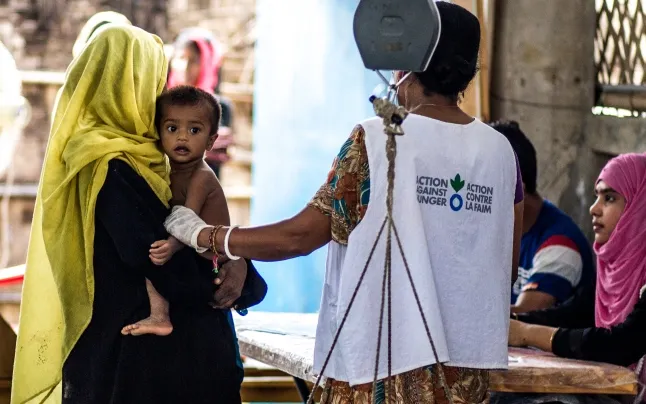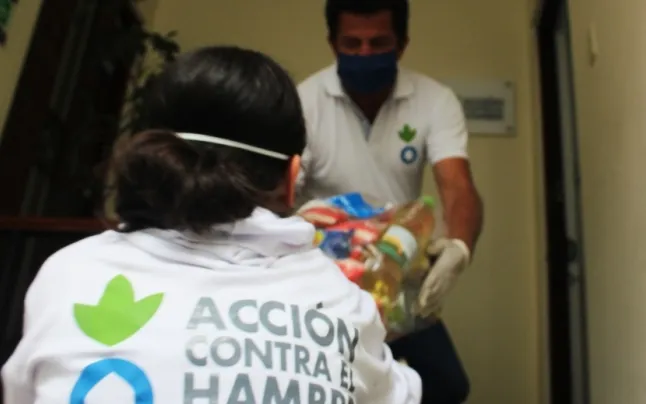Action Against Hunger is concerned about the economic and social consequences that could raise the number of people living in a state of severe food insecurity to over one billion in the foreseeable future.
Action Against Hunger has presented a report analysing the impact of Covid-19 on world hunger. According to the World Food Programme (WFP), this could translate into a risk of severe food insecurity for more than 130 million people, in addition to the 821 million people already suffering from this situation in 2019, according to the FAO.
Given these conclusions, the entity calls for mobilization to recognize the scale of the crisis and to make firm commitments to limit the food and nutritional disaster.
The causes of the impact
Besides the health damage caused by the pandemic, confinement and its consequent restrictions on movement and border closures have had a huge impact on people's livelihood. As reported by the entity, this is already translating into a general reduction in access to utility services, trade and it is affecting the supply and distribution of food and price instability.
For example, in Pakistan, the prices of basic food such as wheat or flour are increasing by 4.9% to 8.4%. The situation in West Africa is also alarming, where 19 million people may suffer from food insecurity between June and August as a result of the current crisis.
Thus, the overall impact of Covid-19 on health and social protection systems and already precarious livelihoods may result in many more people suffering from hunger.
Food insecurity is also increasing in countries like Spain, although with some differences. "In low-income countries, food insecurity means a lack of access to food and causes weight loss. However, in high-income countries, people have access to food of low nutritional quality, which causes overweight and obesity, especially among children", says Luis González, Director of Technical Engineering and Social Action at Action Against Hunger.
A necessary humanitarian response
Action Against Hunger has identified several immediate actions in its report aimed to respond to the current humanitarian crisis caused by Covid-19 and mitigate its effects on food security.
Measures include national ceasefires in conflict zones, ensuring mobility and integrity of medical and humanitarian staff, reinforcing civil-military dialogue and supporting the distribution, purchase, and delivery of PPE, among others.
In Spain, the entity also calls for mobilization to guarantee the sovereignty of healthy food production, to establish policies that encourage the reduction of inequalities and to promote social protection policies "which ensure that people in vulnerable situations do not fall into food insecurity or hunger", concludes Luis González.









Add new comment